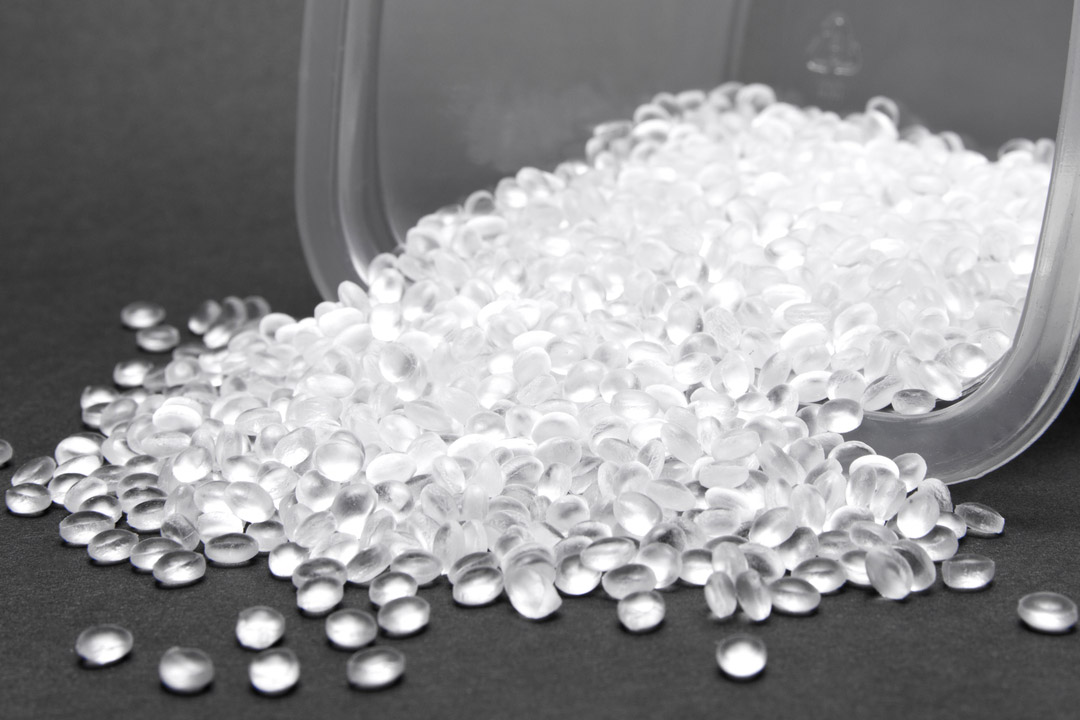
In its 2024 sustainability report, the company said it expected to make a final investment decision on a chemical recycling plant in Houston in the first half of 2026. | StanislauV/Shutterstock
Global polymers heavyweight LyondellBasell provided updated timelines for some of its U.S. recycling projects amid progress toward 2030 plastics goals in a recent report.
In addition to confirming or updating startup dates, the 2024 sustainability report also highlighted key global investments in recycling infrastructure and technology. “The regulatory landscape is rapidly changing, and our strategy capitalizes on emerging opportunities,” the report said, citing the February 2025 implementation of Europe’s Packaging and Packaging Waste Regulation, which mandates minimum recycled content requirements for packaging.
In California, the company is upgrading former PreZero PE film recycling assets and expects to reach full operations at the site when the upgrade is completed in early 2026. The facility continues to operate during the upgrade. When LyondellBasell bought the Jurupa Park assets, it set the expected startup date for late 2025.
In Houston, the company expects to make a final investment decision on its second commercial-scale chemical recycling facility in first-half 2026. LyondellBasell plans a polymers hub similar to its emerging site in Cologne, Germany, which will integrate plastics sorting, mechanical recycling and chemical recycling with its existing feedstock and polymerization facilities. The Houston project is planned on the site of the company’s sole crude oil refinery, which was shut down in Q1 2025.
Construction continues on the MoReTec-1 plant in Cologne, with startup of the company’s first commercial-scale chemical recycling plant expected in 2026. The proposed MoReTec-2 in Houston would have double the capacity of the first, producing 100,000 metric tons of circular feedstock each year.
As for feedstock preparation, in late 2024 the company announced it would build a second Cyclyx Circularity Center in the Dallas-Fort Worth area, along with joint venture partners ExxonMobil and Agilyx, to open in 2026. The first center in Houston is under construction and is expected to start up in 2025.
LyondellBasell also reported strides in other key regions:
- Invested in a German site that will convert automotive and appliance plastics, including bumpers and trim, into circular feedstocks.
- Opened a mechanical recycling facility with Genox Recycling in China.
- Achieved RecyClass certification at its polymers facility in Italy.
- Acquired German recycler APK AG and its Newcycling solvent-based technology. The company added that it is “working toward a final investment decision for a project to further develop” the technology.
‘Some way to go’ on 2030 PCR goals
LyondellBasell increased its volumes of recycled and renewable-based polymers by 65% to more than 200,000 metric tons. The company has a stated goal of producing and marketing 2 million metric tons per year by 2030.
It remained confident that it would reach that goal, noting that “while we still have some way to go to meet our 2030 goal, we are expecting production volumes to ramp up as MoReTec-1 begins operations in 2026.”
In addition to increasing its assets in the circular plastics space, LyondellBasell also redirected its holdings away from less lucrative chemical markets, divesting its ethylene oxide and derivatives business to Ineos, and announcing a strategic assessment of some European olefin, polyolefin and intermediates assets. But the company acquired a 35% stake in the National Petrochemical Industrial Company joint venture, known as NATPET, in Saudi Arabia, and is considering an integrated virgin PP plant at the site.
The company expects EU demand for recycled PE and PP to reach 4 million to 5 million metric tons per year by 2030, driven in part by European regulation and societal attitudes, but emphasized the need for investment and progress to gain speed.
“The infrastructure build-out for collecting, sorting, processing and recycling plastic waste is growing at a slow pace,” the company wrote, which could exacerbate the supply-demand imbalance. As a result, the expectations of demand further outstripping available supply led the company to have a bullish financial outlook.
“Many other operators in the plastics circular economy lack the economies of scale to meet growing demand and as a result, a significant supply shortage of circular plastics is likely to persist into the next decade,” the report concluded.

